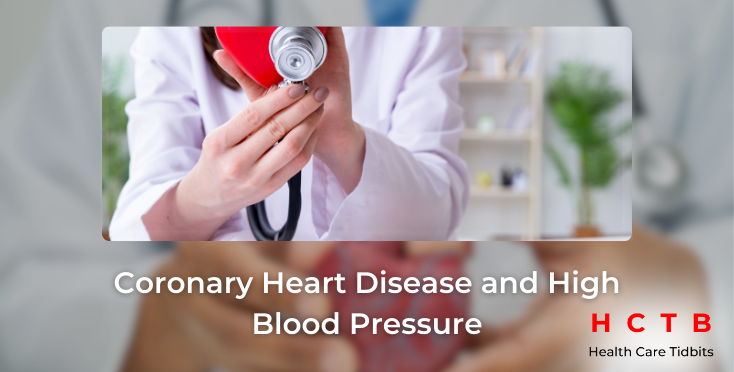
Coronary Heart Disease and High Blood Pressure: A Dangerous Duo
CHD refers to a condition where blood supply to your heart is reduced due to the buildup of plaque, while hypertension is high pressure in the arteries and both affect your heart. The connection between these conditions has to be realised to enable an individual to avoid heart issues and improve his or her health status. This article will focus on explaining the connection between CHD and hypertension, its potential risk factors, signs, and measures that can help prevent its development.
Understanding Coronary Heart Disease
Coronary heart disease develops when the arteries that provide the heart muscles with fresh blood supply are blocked or narrowed by a deposit known as plaque- a substance formed from fat, cholesterol and other substances. This can result in decreased ability of blood flowing in the arteries supplying the heart muscle leading to a condition known as angina…shortness of breath or even a heart attack.
Causes of Coronary Heart Disease:
- Atherosclerosis: The primary cause of CHD is atherosclerosis, a condition characterised by the hardening and narrowing of the arteries due to plaque buildup.
- Smoking: Smoking damages the lining of the arteries and contributes to plaque formation.
- High Cholesterol Levels: High levels of LDL cholesterol can cause plaque to build up in the arteries.
- Sedentary Lifestyle: Lack of physical activity can contribute to obesity, high cholesterol, and hypertension, all of which increase the risk of CHD.
- Unhealthy Diet: A diet high in saturated fats, trans fats, and sugar can raise cholesterol levels and blood pressure.
The Connection Between Coronary Heart Disease and High Blood Pressure
Hypertension is considered to be one of the major potential causes of coronary heart disease. High blood pressure puts extra pressure on the arteries and over time it begins to damage the blood vessels. As a result of this harm, plaques begin to build and the arteries become narrow thus it becomes difficult for blood to flow in the arteries.
How High Blood Pressure Contributes to CHD:
- Artery Damage: Persistent high blood pressure can damage the inner lining of the arteries, making them more susceptible to atherosclerosis.
- Increased Heart Workload: The heart must work harder to pump blood against the higher pressure, leading to the thickening of the heart muscle and increasing the risk of heart failure.
- Accelerated Plaque Buildup: High blood pressure can speed up the process of plaque accumulation, narrowing the arteries more quickly and increasing the risk of heart attacks.
Symptoms of Coronary Heart Disease and High Blood Pressure
Symptoms of Coronary Heart Disease:
- Chest Pain (Angina): A common symptom, often described as pressure, tightness, or squeezing in the chest.
- Shortness of Breath: Reduced blood flow to the heart can make it hard to breathe, especially when you’re active.
- Fatigue: Lack of oxygen-rich blood can make you feel unusually tired or weak.
- Heart Attack: Severe cases may lead to a heart attack, with symptoms such as intense chest pain, pain radiating to the arm or jaw, sweating, and nausea.
Symptoms of High Blood Pressure:
- Headaches: Frequent or severe headaches can be a sign of dangerously high blood pressure.
- Dizziness: High blood pressure may cause dizziness or a feeling of lightheadedness.
- Blurred Vision: Severe hypertension can affect vision, leading to blurred or double vision.
- Nosebleeds: Although rare, nosebleeds can occur in individuals with extremely high blood pressure.
Prevention Strategies for Coronary Heart Disease and High Blood Pressure
Preventing coronary heart disease and high blood pressure involves making lifestyle changes that promote heart health. Here are some key strategies:
- Adopt a Heart-Healthy Diet:
- Eat plenty of fruits, vegetables, whole grains, lean proteins, and healthy fats.
- Limit your consumption of saturated fats, trans fats, salt, and added sugars.
- 4o mini
- Exercise Regularly:
- Get at least 150 minutes of moderate aerobic exercise or 75 minutes of vigorous exercise each week.
- Include strength training exercises in your routine twice a week to boost your heart health.
- Maintain a Healthy Weight:
- Achieve and maintain a healthy weight through a balanced diet and regular exercise to reduce the strain on your heart and blood vessels.
- Quit Smoking:
- Smoking cessation is essential for reducing the risk of coronary heart disease and controlling blood pressure.
- Manage Stress:
- Practice stress-reducing techniques such as meditation, deep breathing exercises, or yoga to lower blood pressure and improve heart health.
- Limit Alcohol Intake:
- Drink alcohol in moderation, as excessive alcohol consumption can raise blood pressure and contribute to heart disease.
- Monitor Your Blood Pressure:
- Regularly check your blood pressure and seek medical advice if it is consistently high. Early detection and management of hypertension can prevent the development of coronary heart disease.
Conclusion
Coronary heart disease and high blood pressure are two conditions that affect the coronary arteries and the heart in general and therefore are very risky. Knowing the causes of the conditions and signs to look for, and taking preventive measures minimizes your chance for the diseases and enhances your cardiovascular health. According to the facts, taking care of your heart and adopting heart-healthy habits will go a long way to preventing all these and thus having a long and healthy life.



